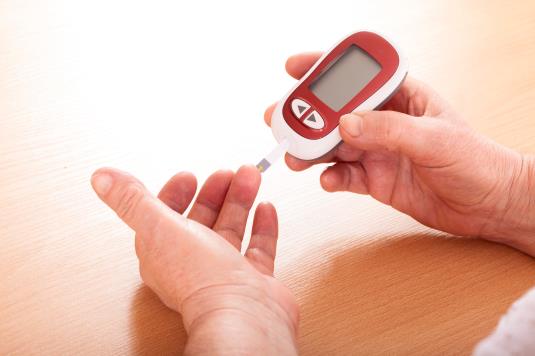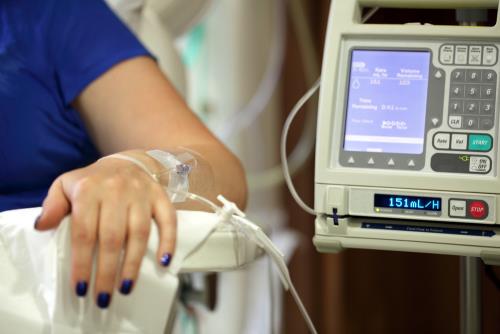Head & Neck Cancer From Diabetes
Could Diabetes Cause Head and Neck Cancer?
 Researchers in Taiwan have recently linked diabetes with head and neck cancer, finding that the risk for such cancers is about 50 percent higher in people with diabetes than it is in people without the metabolic disease. People with diabetes between the ages of 40 and 65 are at the highest risk of all.
Researchers in Taiwan have recently linked diabetes with head and neck cancer, finding that the risk for such cancers is about 50 percent higher in people with diabetes than it is in people without the metabolic disease. People with diabetes between the ages of 40 and 65 are at the highest risk of all.
The study, which was conducted by Kuo-Shu Tseng, PhD and colleagues at Tainan University of Technology in Taiwan, looked at the records of 89,089 people with recent diabetes diagnoses. The researchers compared the data with that of control patients of similar age, gender and medical condition, but without diabetes. The data came from Taiwan’s Longitudinal Health Insurance Research Database.
Diabetes Linked to Greater Risk of Head and Neck Cancer
The researchers looked at the differences in head and neck cancer risk between groups of cohorts based on age, gender and the number of years since each patient was diagnosed with diabetes. When compared with members of a control group, rates of head and neck cancer were 1.47 times higher for patients who had been diagnosed with diabetes.
The average age of head and neck cancer diagnosis among those with diabetes was 55.52 years. The average patient was diagnosed with head and neck cancer 4.48 years after being diagnosed with diabetes. Diabetes patients aged 40 to 65 years were at the highest risk of developing head and neck cancer, while diabetic men were more likely to develop the cancer than diabetic women.
In addition to diabetes, the patients were found to suffer from other concurrent diseases including:
- Hypertension
- Obesity
- Chronic kidney disease
- Chronic obstructive pulmonary disease
- Coronary artery disease
What accounts for the link between diabetes and head and neck cancer? The researchers postulate that the two conditions could share hereditary risk factors or be linked to the same genetic mutation. It’s also possible that head and neck cancer, like breast cancer, could be the result of ongoing hyperinsulinemia, which is common in patients with Type 2 diabetes. The use of insulin may be linked to cell overgrowth. Head and neck cancer could also be the result of some other aspect of metabolic dysfunction. While more research is needed to understand the reasons for the link between diabetes and cancers of the head and neck, patients with diabetes — especially those between the ages of 40 and 65 — would do well to remain alert to possible head and neck cancer symptoms.
 Causes and Treatment of Head and Neck Cancer
Causes and Treatment of Head and Neck Cancer
Unfortunately, the researchers in this study didn’t have access to information regarding the patients’ other risk factors for head and neck cancer. Two of the biggest risk factors for these cancers are tobacco and alcohol use, although there are several occupational and other factors that can increase your risk of head and neck cancers. Human papillomavirus, or HPV, is responsible for a significant portion of head and neck cancers today.
Treatment for head and neck cancer has improved dramatically in recent years. Targeted radiation treatments now allow doctors to treat cancerous tumors of the head and neck while minimizing damage to healthy surrounding tissues. That’s good news for patients diagnosed with these cancers, since the mucous membranes of the mouth, nose and throat are particularly vulnerable to radiation treatment side effects.
Researchers in Taiwan have discovered a possible link between diabetes and head and neck cancer. Diabetic men aged 40 to 65 are at the highest risk. The good news is that these cancers are more treatable than ever. Staying alert to possible cancer symptoms could save your life.
